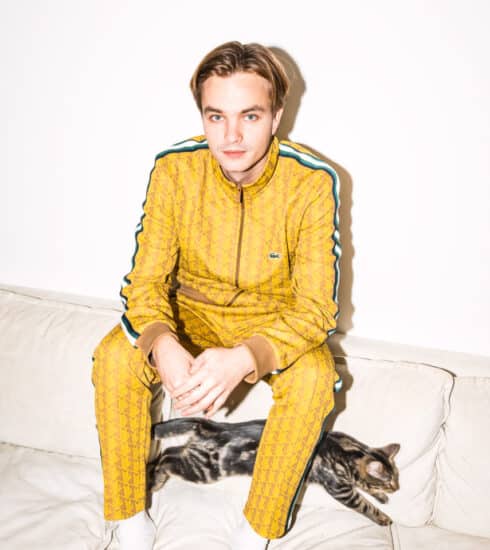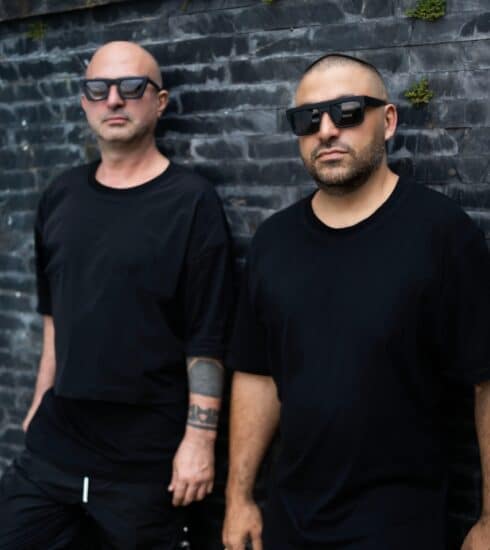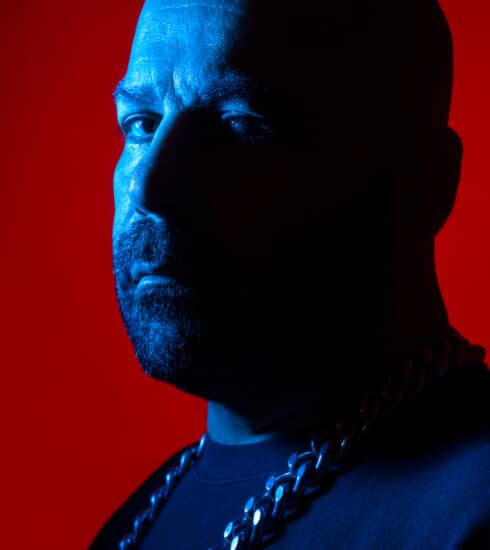Castora Herz – Merging The Ancestral Traditions Of The Iberian Peninsula With Electronic
Castora Herz is a Spanish DJ, producer and founder of the record label Samain Music. He composed music for the short film “PANDEMIA” (2020) and has won numerous international awards for his music for films.
What is the vision and mission of Samain Music?
At the time of Samain Music’s foundation, in Berlin in 2019, the aim was to make the wide range of Iberian folk traditions known in Europe. At a time of great explosion of world music, where folklore from Latin America or Africa was everywhere, was being mixed with all styles and could be heard in any club in Europe, for example in Berlin, we found that the rich Iberian musical tradition was not represented at all and was a real unknown in those circles. But once we moved to Spain, our mission obviously changed. Now we work to give value to our ancestral culture in our own land, which seemed as if it had lost it at some point. And at the same time, to refresh and update it with the new ways of making music and understanding the art of today as a way to reach the new generations.
What are the main challenges or opportunities of running a record label in a rural area in the centre of Spain?
The biggest challenge obviously is to be able to reach people and make our project known from outside the big cities and the big cultural and economic centres, where normally everything is going on. That’s why we are always trying to move and travel and go to show our projects in Madrid, Barcelona, Berlin, Frankfurt, etc… Also, luckily we are in the Internet era and we can still be connected from anywhere in the world. As for the opportunities, the most important one is the capacity we now have to be in contact with the roots, to be where this tradition and this ancestral culture was always generated and continues to be created, to be able to investigate first hand the folklore and the people who carry it out. In addition, having large, comfortable, pleasant spaces in contact with nature at a very reasonable price in a time when the economy has gone crazy and it is almost impossible to live in the big cities also helps to develop projects.
How do you discover and select the artists who collaborate?
As I said the internet is a main tool nowadays, so it is one of the main channels through which I discover the projects that we publish in Samain. Sometimes I get in touch with them, sometimes they write to me. I am very open to the proposals that may arrive and I see that they fit with our line of work. And also obviously word of mouth works very well. In general, we try that the aesthetic line has a point of depth and darkness in our releases, but as I am the one who produces or co-produces many of the projects we release, I can unify the line of the label.
What are the main influences and inspirations behind the Codex Futura compilation series?
Our influences come mainly from the Iberian musical tradition, which is tremendously rich and diverse. Due to its geographical situation, during the last 4 millennia the Iberian Peninsula has been conquered or migrated by an incalculable number of peoples. From the east: Phoenicians, Gypsies, Greeks, Romans; from the north : Celts, Vikings, Germanic peoples such as Goths, Alans, Vandals, Suevi; from the south, Arabs, Carthaginians, Africans, Berbers, Jews; and in the last 500 years from the west there has been a great influence coming from America… and all of them in one way or another have left their mark, which has turned a relatively small territory into an incredibly rich and varied cultural melting pot, with countless different traditions and aesthetically very powerful.
How do you balance the preservation of the Iberian folklore with the innovation of the new trends in electronic music?
Samain’s philosophy is to cover any type of electronic music and any type of Iberian folklore as long as these two elements are always part of the equation, in one way or another. All the range of possible mixes from folk to electronica are suitable for the label, being possible to publish very folkloric tracks with little electronic components, and very electronic tracks with some traditional touches.
What are some of the highlights and feedbacks of the Codex Futura vol. III compilation, which was released in July 2023?
Throughout the three editions of the Codex Futura compilation, we have had coverage in multiple international media such as Resident Advisor, Mixmag, Insert (UK), Cosmos Radio (Germany), Where the music meets (Portugal), Couvre X Chefs (France), Dublab Radio (USA) Latino Resiste (Canada), etc …. but especially on Spanish national media such as La Vanguardia, one of the main newspapers in the country, on multiple occasions on the national public radio station Radio3: in electronic music programs and others of a more general nature, on the specialized magazine Diario Folk, or on other media such as Onda Cero, Radio Gladys Palmera, Clubbingspain, Beatburger, El Español, even on some regional television such as Noticias de Castilla y León.
What are some of the current and future projects that you are working on or planning to work on?
Samain’s next projects include the release of a collection of EPs by artists of the label such as Granha, Castora Herz, Asina or Miraflorê. In addition, we will make a spring release of Delameseta’s project paying tribute to one of the most important Castilian folklorists Agapito Marazuela. On the other hand, apart from the publishing activity, we are starting to make an event in different cities, called Samain Club, where we can showcase the artists of the label and bring to the dance floor our music and other Iberian folktronica.
How do you see the evolution and future of the Iberian avant-garde music scene?
Avant-garde music with Iberian roots or Iberian folktronica or whatever you call it is a style and a scene that is clearly on the rise in our country. Artists like Baiuca, Califato 3/4, Rodrigo Cuevas, Rocio Marquez & Bronquio, Dulzaro… are consolidating and reaching more and more people outside the traditional folk scene. Although outside our country there are still few artists who can present their projects, so there is still a lot of work to be done.






